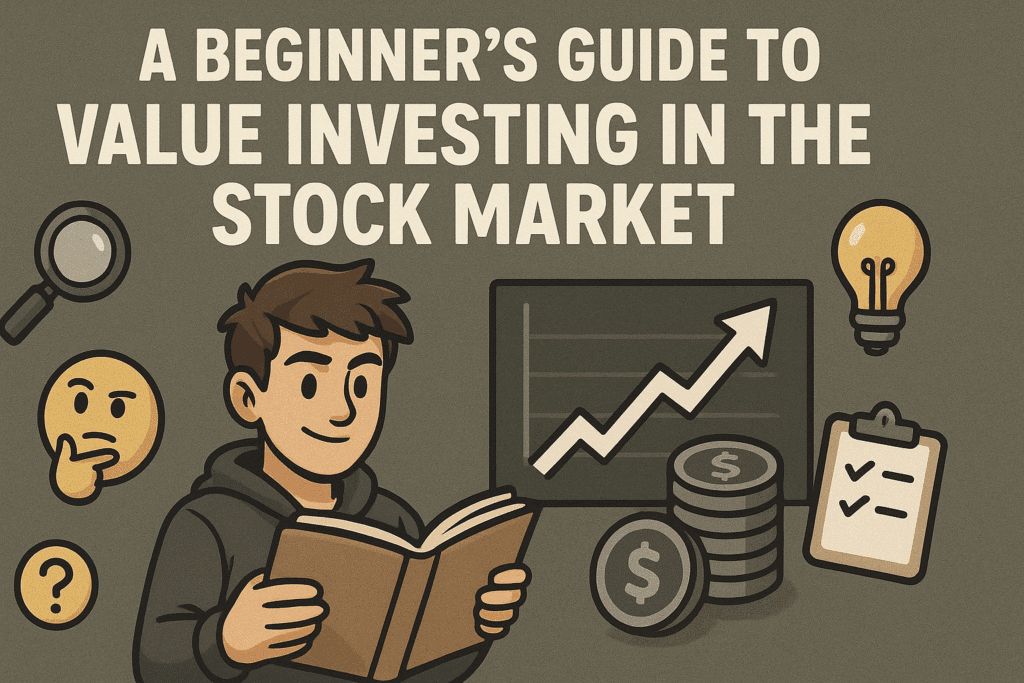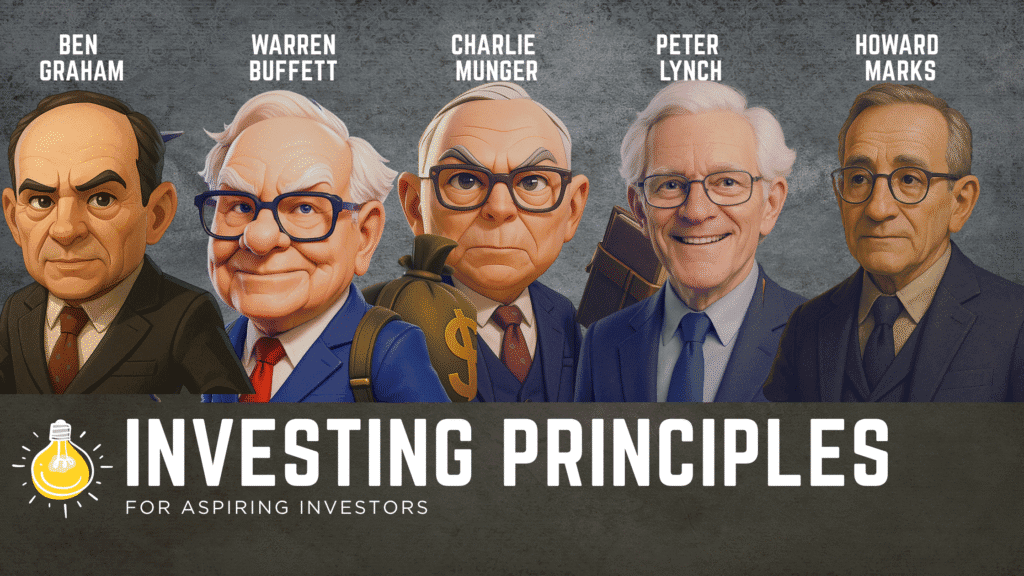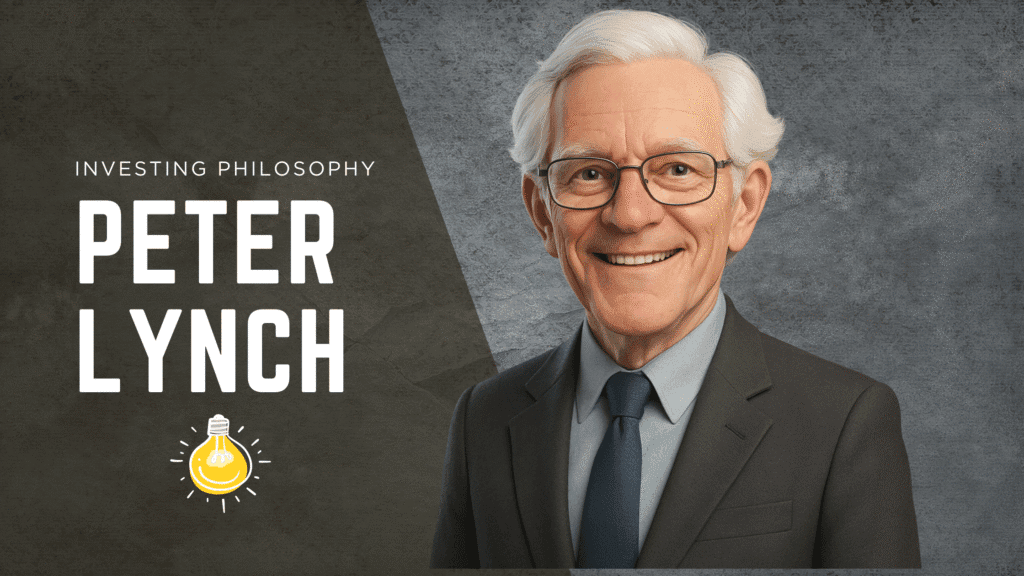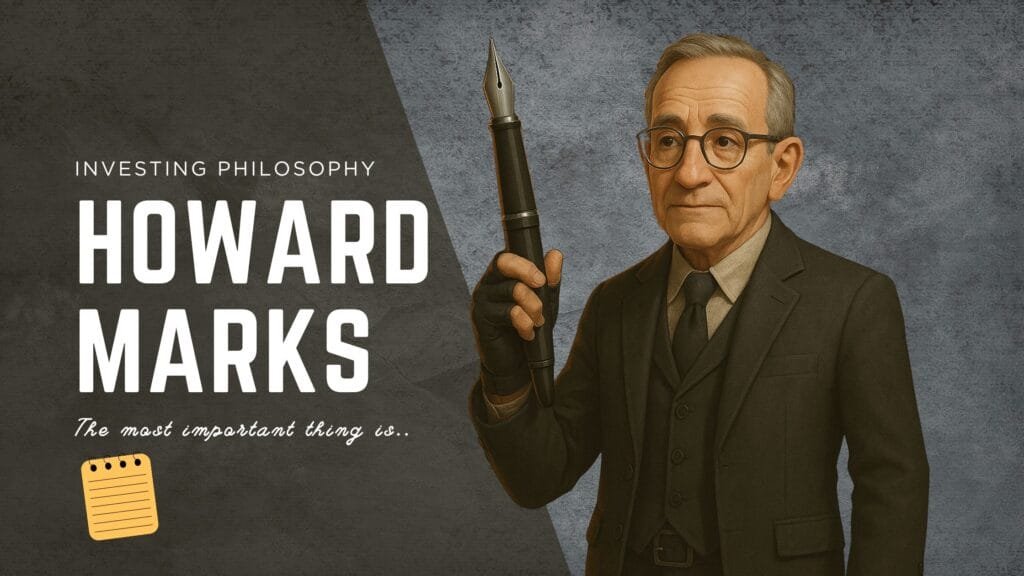Stay Hungry, Stay Foolish: Transformative Lessons from Steve Jobs
What I Learned from Steve Jobs: A Visionary’s Legacy
Steve Jobs – the name itself conjures images of sleek devices, groundbreaking presentations, and a relentless pursuit of perfection. Like he once said, ‘Stay Hungry, Stay Foolish’, Jobs was hungry and had the unwavering belief that you can, and should, put a dent in the universe. The learnings from Steve Jobs boil down to a few core principles: such as the power of simplicity, the importance of passion and the courage to not just think different, but be different.
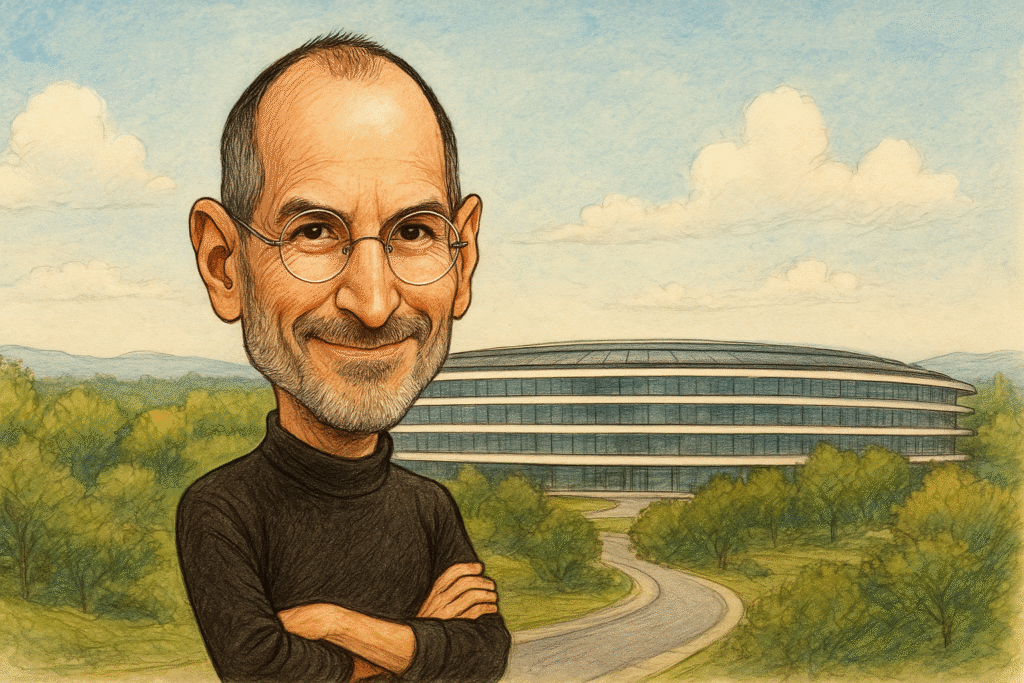
Early Days and an Unconventional Path
From his earliest days, Steve Jobs was a different kind of thinker. He was adopted and grew up in California, a hotbed of counterculture and technological experimentation. This environment, coupled with his innate curiosity, nurtured a mind that wasn’t content with existing paradigms. He famously dropped out of Reed College, but stayed on to audit classes, including a calligraphy course that would later prove pivotal. This seemingly unrelated pursuit highlights one of the first, and perhaps most crucial, lessons: embrace diverse experiences and trust that they will connect in unforeseen ways. Jobs didn’t follow a traditional path, and it was precisely that unconventional journey that allowed him to see possibilities others missed.
His early life was marked by an intense curiosity, which led him to connect with Steve Wozniak. Their first major joint venture wasn’t immediately Apple; it was building “blue boxes,” illegal tone generators that allowed users to make free long-distance phone calls. While ethically dubious, this early venture taught Jobs a crucial lesson: they could turn a wild, complex technical idea into a physical product that people would pay for. This success gave Jobs the thrill of translating a vision into reality.
The Birth of Apple and the Macintosh Era
Jobs started Apple Computer in 1976 with Steve Wozniak and Ronald Wayne primarily to democratize computing and transform the complicated, expensive machines of the era into user-friendly tools accessible to everyone. The core motivation was a shared vision to take the personal computer from being a hobbyist’s kit (like the Altair 8800) to a finished product for the masses. Wozniak, a brilliant engineer and member of the Homebrew Computer Club, had designed the Apple I circuit board simply for his own use and to impress his friends. Jobs, however, recognized the enormous commercial potential of Wozniak’s design and convinced him that they needed to build and sell it, not just give the schematics away. Jobs viewed Apple as a “crusade”—a mission to bring “better computer power to people” and grant individuals personal control over their technology, a feeling he once likened to owning a Volkswagen instead of relying on public transport.
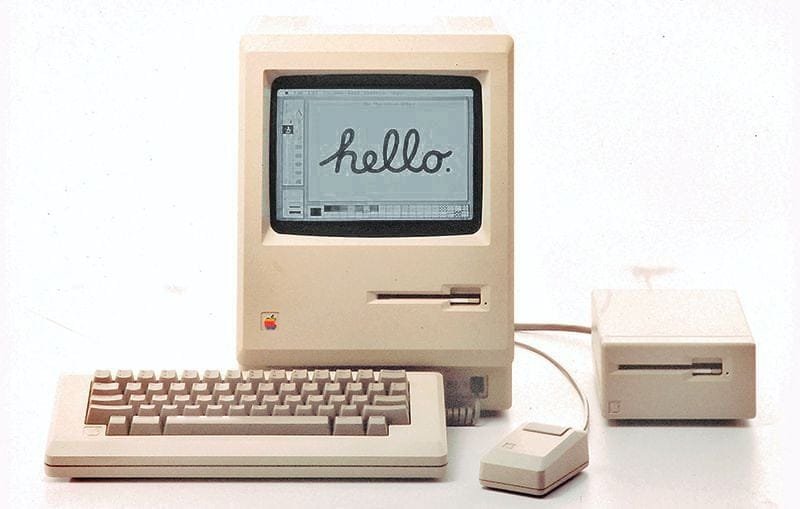
The creation of Apple Computer changed the landscape of personal computing. The Macintosh was designed with an intuitive graphical user interface (GUI) and a mouse, a stark contrast to the text-based command lines of its contemporaries. Jobs famously pushed his team to create something “insanely great.”. The Macintosh project faced immense skepticism, both internally and externally. Critics questioned its practicality, its cost, and its departure from established computing norms. While Macintosh wasn’t a runaway commercial successs, Mac’s innovations like the GUI and eventual support for desktop publishing would ultimately be adopted by competitors.
The Wilderness Years
Despite the initial success of the Macintosh, Jobs’s tenure at Apple was not without its turbulence. His demanding style, uncompromising vision, and sometimes abrasive personality led to clashes with the board, ultimately resulting in his ousting from Apple in 1985. This period, which he later referred to as “the wilderness years,” was undoubtedly painful, but it also proved to be a crucible of learning. During this time, he founded NeXT, a computer company focused on higher education and business, and Pixar Animation Studios. These ventures, while not always financially triumphant in their early stages, further honed his skills, broadened his perspective, and instilled in him a deeper understanding of leadership and product development.
It was during this time, and indeed throughout his career, that Jobs refined his understanding of focus and simplicity. At NeXT, he grappled with the complexities of software and hardware development, realizing that sometimes the most powerful decision is to simplify, to remove features that don’t add essential value. This philosophy would become a cornerstone of his second act at Apple. For aspiring entrepreneurs and leaders, this is a profound lesson: resource allocation, both in terms of time and effort, is critical. Being able to identify and eliminate non-essential elements allows for greater focus on what will truly make a difference.
The Return to Apple: A Resurgence of Vision and Purpose
Jobs’ return to Apple in 1997, initially as an interim CEO, marked one of the most remarkable comebacks in corporate history. Apple was treading water and losing its identity. Jobs wasted no time in streamlining the company, cutting unprofitable product lines, and bringing a renewed sense of purpose. He brought his authentic self, his unique vision, and his uncompromising drive back to the company. He understood that life is too short to compromise one’s core beliefs or to pursue goals that don’t align with one’s own sense of purpose.
His resurgence at Apple was marked by a series of iconic product launches: the iMac, the iPod, iTunes, the iPhone, and the iPad. Each of these products wasn’t just a technological advancement; it was a cultural phenomenon. They embodied his philosophy of combining cutting-edge technology with elegant design and user-friendly interfaces. He believed in making things easy to use, stripping away complexity, focusing on the essential, and creating products that felt intuitive and magical. The iPod, for instance, wasn’t the first MP3 player, but it was the first to seamlessly integrate hardware, software, and a music store (iTunes), all presented in an incredibly simple and elegant package. Clarity, elegance, and ease of use turned out to be not just desirable traits, but also powerful competitive advantages.
The Timeless Lessons of Steve Jobs: What His Words Really Teach Us
Steve Jobs’ quotes were often short and simple, but carried important ideas about work, life and creativity that still resonate. Below, we’ll explore ten of his best-known quotes and the stories behind them — how he lived those lessons and what they can teach us today.
1. “The only way to do great work is to love what you do.”
Steve Jobs believed that real excellence comes from skill as well as a passion – when you love what you do, the long hours and tough challenges don’t feel like a burden. You keep pushing, even when things get hard, because you genuinely care about the outcome. That’s what he meant by loving what you do — not that every day will be perfect, but that you’ll have an inner drive that keeps you going when things aren’t.
For Jobs, his career was full of moments where passion made all the difference. From the early days of Apple he was obsessed with making computers that regular people could use and enjoy. When most machines were dull and technical, Jobs imagined something elegant, personal, and even fun. He poured himself into every detail of the Apple II and the Macintosh, often pushing his team hard because he believed the work mattered.
Later in his life, with Pixar, Jobs saw the potential of combining technology and storytelling. That passion eventually led to Toy Story, the world’s first fully computer-animated film, which changed the animation industry forever.
For Jobs, loving your work wasn’t about chasing comfort. It meant committing to something that challenged you and inspired you at the same time. He often said that if you look in the mirror too many days in a row and don’t like what you’re doing, it’s time to change direction. Life is too short to spend it on things that don’t excite you.
The takeaway: If you’re working on something you genuinely care about, you’ll keep showing up — even when results take years.
2. “We’re here to put a dent in the universe. Otherwise why else even be here?”
Jobs genuinely believed that he can make a dent in the universe. He desperately wanted to leave a mark. In Apple’s early years, he told his team that they weren’t just making computers; they were changing how people interacted with technology. Later in life, Apple Inc’s revolutionary products like the iMac, iTunes, iPod, and eventually the iPhone changed how people communicated and consumed information.
The takeaway: Jobs’ “dent in the universe” idea reminds us that great work aims to make life better for others.
3. “Don’t let the noise of others’ opinions drown out your own inner voice.”
Jobs had no shortage of critics. From board members to journalists, plenty of people told him he was wrong — too demanding, too idealistic, too obsessive. But he rarely let outside noise dictate his direction.
When he first pitched the idea of a computer with a graphical interface — one that used icons and a mouse — many in the industry dismissed it as a toy. They thought real computers should use text commands. Jobs ignored them and pushed forward with the Macintosh. It became a cultural milestone.
Later, people laughed at the idea of a phone without buttons. Jobs trusted his intuition, and the iPhone ended up reshaping the entire mobile industry.
He wasn’t always right — the NeXT computer failed commercially — but his willingness to trust his instincts often led to breakthroughs.
The takeaway: Listening to your gut isn’t about arrogance; it’s about knowing when to tune out the noise so you can hear your own reasoning clearly.
4. “Innovation is saying no to a thousand things.”
Jobs understood that focus is the secret ingredient in creativity. Innovation isn’t just about adding new features — it’s often about deciding what not to do.
When he came back to Apple, the company had dozens of product lines, each slightly different. He cut almost all of them. He told his team they would focus on just four products: a desktop and a laptop, for consumers and professionals. That decision simplified Apple’s direction and made room for excellence.
This principle guided Apple’s design process for years. The first iPod had no radio, recording, or fancy extras — just a clean interface and a scroll wheel. The iPhone launched without copy-paste or third-party apps, because Jobs wanted to get the essentials right first.
The takeaway: Saying no doesn’t limit innovation — it sharpens it. Clarity gives teams the freedom to perfect what matters most.
5. “Simplicity is the ultimate sophistication.”
Jobs was obsessed with simplicity. He saw it not as a lack of features but as the highest form of refinement — where complexity is hidden behind effortless design.
He borrowed this idea from his interest in calligraphy, Zen Buddhism, and product design. The original Macintosh had a friendly interface with clean icons. The iMac had a single, colorful shell when other computers were beige boxes. The iPhone had one button when competitors had dozens.
Jobs and designer Jony Ive spent hours refining corners, materials, and packaging. Even the box Apple products came in was designed to feel satisfying to open. Simplicity wasn’t a marketing tactic — it was a philosophy that demanded discipline and attention to detail.
The takeaway: True simplicity comes from hard work — from understanding every detail well enough to make it feel effortless to others.
6. “Your time is limited, don’t waste it living someone else’s life.”
This quote, from Jobs’ 2005 Stanford commencement speech, reflected his deep awareness of mortality. After his cancer diagnosis, he became even more focused on how short life is. His point wasn’t about rebellion for its own sake — it was about authenticity.
Jobs didn’t follow the usual path. He dropped out of college, experimented with spirituality, and spent time traveling in India before starting Apple. He made unconventional choices because he trusted that his curiosity would lead him somewhere meaningful.
Even in business, he avoided copying competitors. Instead of chasing trends, he built what felt right to him. The iPod wasn’t the first music player, but it was the one that worked seamlessly. The iPhone wasn’t the first smartphone, but it was the one that redefined the category.
The takeaway: You only get one shot at life. Spend it doing work that reflects your values, not just what others expect of you.
7. “The people who are crazy enough to think they can change the world are the ones who do.”
This line became the heart of Apple’s famous “Think Different” campaign in 1997. It celebrated rebels, misfits, and dreamers — people who challenge the status quo. Jobs believed those were the people who moved the world forward.
He saw that same spirit in Apple. When the company was nearly bankrupt, most assumed it was finished. But Jobs encouraged his team to think boldly, to build products that others thought impossible. The iMac brought color to computers. The iPod put a thousand songs in your pocket. The iPhone put the world of apps in your hand.
Jobs’ genuinely believed technology could improve lives and that Apple’s mission was to make that happen beautifully.
The takeaway: Ambition that looks “crazy” to others might just be the first step toward real change.
8. “All I ask is that today you do the best work of your entire life.”
Jobs had famously high standards. He wasn’t easy to work for, but he had a way of pulling extraordinary results out of people. This quote captures his mindset — that every day is an opportunity to do your best work, not someday in the future.
He expected his team to sweat the details. Whether it was the design of a circuit board that users would never see, or the sound a Mac made when it started up, Jobs cared deeply. He wanted people to put pride into their craft, to treat their work as art.
At Pixar, he brought the same attitude. He pushed animators to make every frame perfect. He encouraged the Toy Story team to keep refining it until they got it right. That attention to daily excellence became a culture — one that shaped both Pixar and Apple for decades.
The takeaway: Great work isn’t about one big moment — it’s about showing up each day with the intention to give your best effort.
9. “Stay hungry. Stay foolish.”
Jobs ended his Stanford speech with these words — a message about curiosity and humility. “Stay hungry” means never getting too comfortable, always looking for the next challenge. “Stay foolish” means not being afraid to take risks or look silly when trying something new.
He lived by both. After being fired from Apple, Jobs could have retired rich. Instead, he started NeXT and invested in Pixar — two massive gambles. When he came back to Apple, he didn’t settle for stability. He kept pushing boundaries, even when success seemed secure.
This mindset kept Apple innovative. Jobs didn’t want the company to coast on its past wins. He wanted it to keep experimenting — from the iPod to the iPad — driven by that same restless curiosity.
The takeaway: Hunger keeps you learning; foolishness keeps you brave enough to try. Both are essential if you want to keep growing.
10. “Excellence is a habit.”
Jobs understood that excellence isn’t an act of genius; it’s a routine. It’s built through daily discipline — through caring about every small decision.
At Apple, that meant constant refinement. Jobs would review prototypes again and again, asking his team to adjust things most people wouldn’t notice — the feel of a button, the sound of a click, the way icons looked on screen. He believed small details added up to big experiences.
He also built habits of excellence into Apple’s culture. Every product launch, every store layout, every advertisement reflected consistency and taste. These weren’t accidents — they were the result of habits repeated over years.
The takeaway: Excellence is caring enough to do things right — every single time.
Final Thoughts
Steve Jobs’ words endure because they were principles he lived by. He believed in love for the craft, clarity of purpose, focus, and daily discipline. His life showed that creativity comes from caring deeply and holding yourself to a higher standard.
Whether you’re building a business, writing a story, or working a regular job, these lessons apply just as much. Love what you do. Think differently. Don’t be afraid to say no. Keep your standards high, your curiosity alive, and your time focused on what matters most.
That’s what Jobs did — and that’s why his ideas continue to inspire long after he’s gone.
Shop Collectibles
Featured products
‘Notebook of Wisdom’ with 160 Investing Quotes
Original price was: $99.00.$69.00Current price is: $69.00.AI Stock Research Checklist with Prompts
Original price was: $30.00.$15.00Current price is: $15.00.Canvas Print with Warren Buffett success quotes and caricature
Original price was: $119.00.$89.00Current price is: $89.00.




